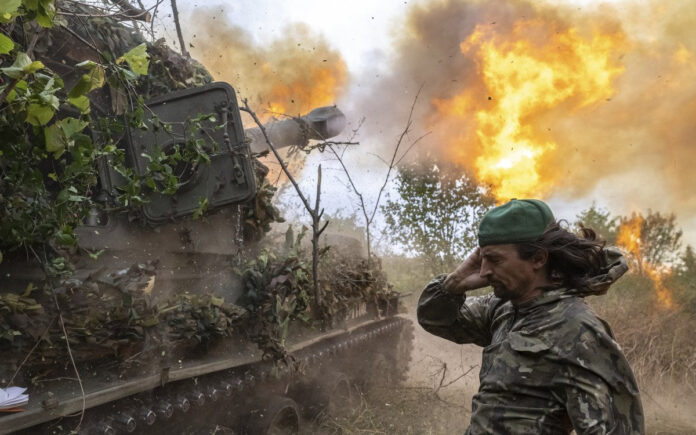London: Russia had advance knowledge of Ukraine’s plans to launch an offensive in the Kursk region, according to purported Russian military documents seized by Ukrainian forces. These documents, as reported by The Guardian, reveal that Moscow had been preparing for months to counter the attack. The documents also highlight concerns about the low morale of Russian troops on the frontlines, which were further worsened by the suicide of a Russian soldier who had reportedly been overwhelmed by “prolonged” military service.
According to the seized documents, the Kremlin had issued directives to Russian commanders, instructing them to ensure soldiers consumed daily doses of state-sponsored media to improve their “psychological condition.”
Document Authenticity Questioned
While Ukraine claims to have captured these documents from abandoned Russian posts in the Kursk region, The Guardian clarified that it could not independently verify their authenticity. However, the documents bore signs of typical Russian military communications. Among the seized materials were documents linked to the Russian Interior Ministry and the Federal Security Service (FSB).
Some of the papers were dated just six weeks before Ukraine’s incursion into the Kursk region, which began on August 6. The documents are believed to have come from Russia’s 488th Guards Motorised Rifle Regiment.
Also Read | Cristiana Barsony-Arcidiacono: The Woman at the Center of Lebanon’s Exploding Pager Scandal
What the Documents Revealed About the Ukrainian Offensive
One document, dated January 4, disclosed that Russia was aware of a “potential for a breakthrough at the state border” by Ukrainian forces. Moscow reportedly ordered its military to enhance training and remain vigilant to counter any such attack.
Another document, dated February 19, warned Russian commanders about the possibility of a “rapid push from the Sumy region into Russian territory, up to a depth of 80km (50 miles).” The objective of this push, according to the document, was to establish a four-day corridor to facilitate the entry of Ukrainian armored units.
By March, the Russian military had issued further directives to reinforce defensive positions and conduct additional training exercises for unit leadership. These measures were intended to strengthen defenses in preparation for an anticipated cross-border assault by Ukrainian forces.



